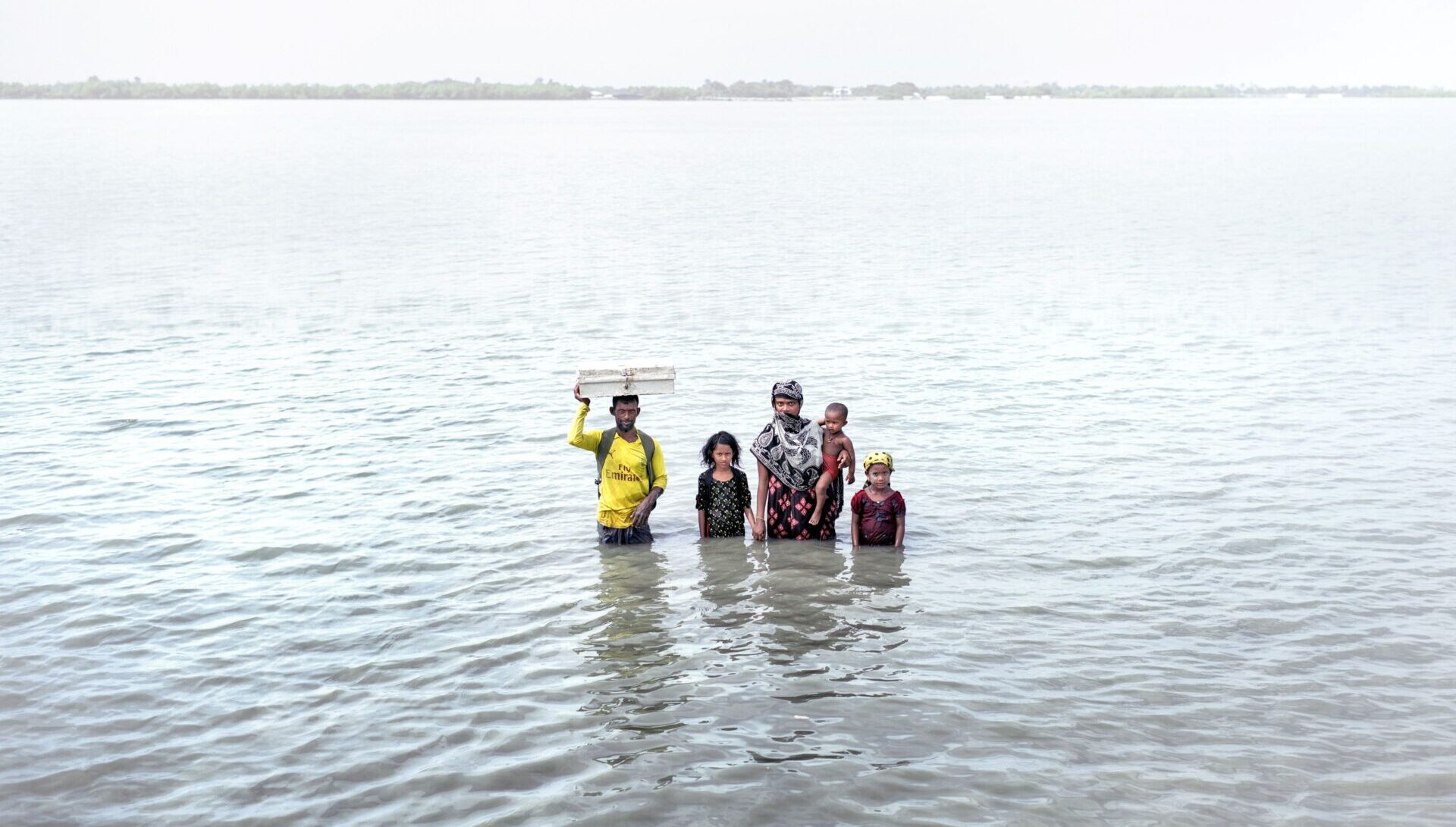
The Statelessness Challenge
InterAction and ICVA Joint Global Refugee Forum Blog Series
In a world where borders define identities and citizenship is a cornerstone to belonging, the plight of stateless persons presents a significant challenge to perceptions of inclusivity and justice.
The Complexities of Statelessness
Statelessness is a complex challenge stemming from legal, political, and social complexities resulting in millions of people being denied the most basic rights, protections, and opportunities simply because they lack a nationality. This state of limbo has a severe and lifelong impact on those it affects. Addressing statelessness goes beyond political will and legal reform; It requires a whole societal approach to collectively recognize the condition of stateless individuals and take concrete steps to protect their rights.
Legal Complexities: The lack of a recognized citizenship status leads to difficulties in accessing legal rights and protections for stateless individuals. They have difficulties accessing basic services including healthcare, education, and employment, and they face the challenges of free travel as a result of cross-border restrictions, difficulty obtaining identification documents, and in some instances, legal marriage.
Political Complexities: Host governments are usually reluctant to address statelessness due to national security concerns, perceived demographic changes, and perceived threats to social cohesion.
Social Complexities: Unless proactively arrested, statelessness can lead to severe cases of marginalization and exclusion, with stateless persons facing discrimination, stigmatization, and limited opportunities for integration. These often coincide with a higher risk of poverty, exploitation, and human rights abuses. Additionally, many children are now being born into statelessness, creating a vicious cycle of statelessness.
The Global Refugee Forum and Multistakeholder Pledges
The Global Refugee Forum (GRF) is a platform for all stakeholders—local and international organizations, civil society, and the private sector—to unite to show solidarity and share responsibility in addressing the challenges of statelessness worldwide. The 2023 GRF mobilized support and resources and encouraged commitments toward enhancing self-reliance and long-term solutions for refugees, internally displaced persons (IDPs), and stateless persons.
In the 2023 GRF, the Adventist Development and Relief Agency (ADRA) decided as one of its pledges, to “become a member of the Statelessness and Dignified Citizenship Coalition – Asia Pacific,” and thus joined itself to the Multistakeholder Pledge on Advancing Localization in Displacement and Statelessness.
The Statelessness and Dignified Citizenship Coalition – Asia Pacific (SDCC-AP) region was officially launched at the World Conference on Statelessness in February 2024. It was established to address and resolve issues of statelessness and ensure the promotion of dignified citizenship throughout the Asia Pacific region by bringing together non-governmental organizations (NGOs), international NGOs (INGOs), civil society, and academia. The coalition also conducts and disseminates research within the region, engages with policymakers and advocates for legal reform, provides legal and social support to stateless persons, and raises awareness and educates the public on challenges faced by stateless individuals.
ADRA has fulfilled the pledge to join the coalition and work with the Government of Thailand. ADRA now also has the opportunity to monitor the coalition’s activities for performance accountability, with the privilege of serving on the steering committee as a founding member of the coalition. Monitoring of the multistakeholder pledge requires coordination with diverse stakeholders, helping maximize resources and improve outcomes for refugees.
Looking Ahead
The International Council for Voluntary Agencies (ICVA) has mapped out and shared all the GRF pledges for the Asia-Pacific Region, noting that statelessness is a cross-cutting theme throughout. While this is a good starting point, there is a need to go further and have the various pledging entities come together where there are synergies, monitor progress made and jointly plan how to meet these pledges, work with national governments on policies, and secure additional financial assistance. Having regular review points, and a champion in each country to coordinate efforts from the pledging entities alongside the governments, would be a step in the right direction.
Governments, the U.N. Refugee Agency (UNHCR), and pledging entities should utilize and work with grassroots organizations, impacted persons, and other entities such as the SDCC-AP to fulfill the pledges. A task team in each country comprising of the pledging entities should also meet to monitor progress and report to UNHCR on progress made. This will provide a check and balance between what the pledging entities report and what is realistically implemented.
Together we can all make a difference if we take a stand in solidarity showing compassion, tolerance, acceptance, and commitment to impacted persons stemming the cycle of marginalization and exclusion.
—
About the Author
Akintayo Odeyemi MSA, PhD is the Director of ADRA International’s United Nations Liaison Office. The Adventist Development and Relief Agency (ADRA) delivers relief and development assistance to individuals in more than 120 countries and is determined to be an active part of the regional coalition in Asia and the Pacific led by its Thailand office, recognizing that this region has the highest concentration of stateless persons with 56% of the global total, as of mid-2023 figures reported by UNHCR.
The views expressed in this article are the writer’s own.
—
For information regarding the Global Refugee Forum Blog Series, please contact Ellie Doblin at edoblin@interaction.org.








